In the late-aughts (meaning: 2000-2009), my tea journey paralleled another hobby.
YouTube.

Since I worked the graveyard shift for most of the first decade of this century, I devoured a lot of content on that once-brand new streaming site. Even up to the present, this quiet addiction still percolates. Sometimes, it even cross-pollinates with my tea addiction, such as with my own under-used YouTube channel.
But YouTube and tea never really came in direct contact with an even older hobby of mine: etymology.
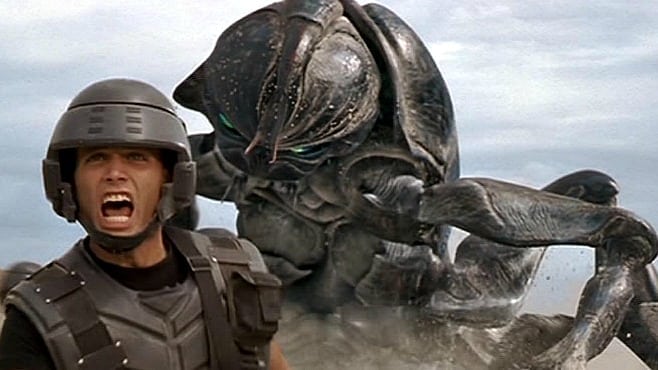
No, not entomology. Etymology; the study of words. More specifically, it’s the study of the meaning behind certain words and phrases.
Granted, all one has to do is peruse the archive of this here blog and see that word history plays a big part of the stories I convey. But I’ve rarely run into a phrase, with only a passing connection to tea, which confounds me. The subject of this article is one such phrase.
I’ll elaborate.
Lately, I’ve been watching a lot of videos by one Shane Dawson. To put it mildly, I’m very far removed from his usual demographic of viewers, but lately I’ve grown intrigued by his content. Instead of his usual shtick of conspiracy theories or comedy skits, he’s taken up the mantle of documentary series. And the results have been superb. Truly, I think he’s found his voice as a content creator—nay, filmmaker—with this new format.
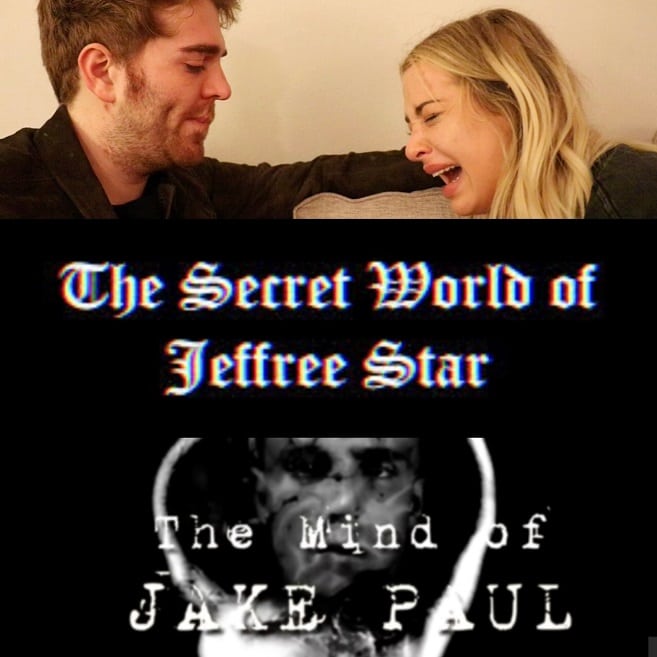
All gushing aside, I ran across a phrase that kept showing up in his videos. Especially in the series featuring the enigmatic Myspace-star-turned-make-up-magnate, Jeffree Star. That phrase: “the real tea”.
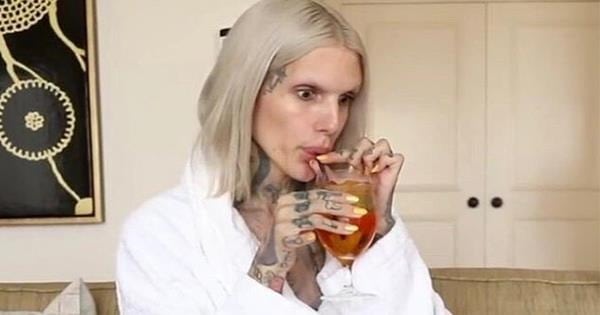
Call me old-fashioned (or just plain old), but I’d never heard that phrase used before. At least, not in the context they were using it. When I thought of “real tea”, I thought of real tea: a hot beverage made from the leaves of Camellia sinensis. On a quick search, Google seemed to agree with me.
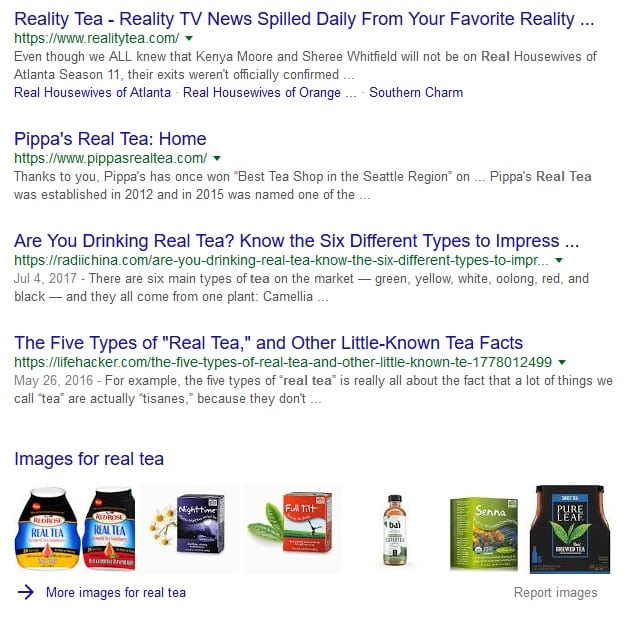
Sort of.
Within the last few years, a new definition has emerged. That got my little word nerd heart a-pumpin’. However, just searching “real tea” alone was a dead-end. I had to broaden my search. What I did not know was how fittingly puntastic the term “broad search” would become.
When searching “tea” and “etymology” together, the first things that popped up were various clickbaity articles on the subject. I won’t reference them here; they’re junk. But they all pointed to two sources of a related phrase. The phrase? “Spill the tea”. The sources: Urban Dictionary and Merriam-Webster.
Wincing, I first went to Urban Dictionary. Without citations (of course), all the entries for “spill the tea” corroborated the same idea. The idiom began in the South among the drag community. Some said it originated among the gay and drag communities of San Antonio, Texas. Others mentioned Savannah, Georgia. The only exact consensus was the meaning: “to gossip”.

Editor’s Note: The author is fully aware that drag and transgender are mutually exclusive communities. However, there is some crossover (no pun intended) between the two. As well as with the greater LGBTQ+ sphere. That also includes the proliferation of slang and idioms, such as the ones being discussed.
Next was Merriam-Webster, and that article was much more revealing:
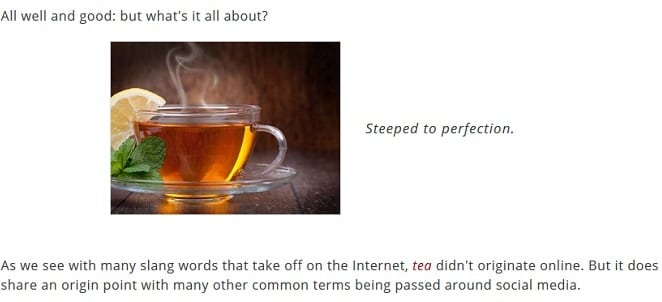
The article didn’t just credit Southern American drag culture for popularizing the term, but specifically gave credit to Southern African-American drag culture for its proliferation. The earliest wide exposure the term received was from a Savannah transgender resident who went by the fabulous nom de guerre—Lady Chablis.
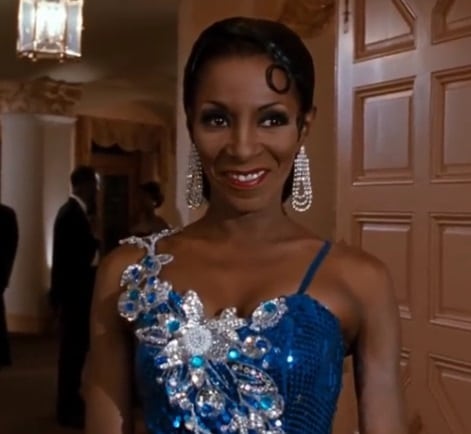
May she rest in peace.
Her most prominent starring role was in the movie, Midnight in the Garden of Good and Evil, in which she played herself. In a dialogue between her and the protagonist (played by John Cusack) she elaborates that “tea” (or sometimes just the letter T) referred to “truth”. Her truth. Whether about her true gender, or her personal truth.
In the following decade, as drag culture gained wider acceptance, the term proliferated . . . and permutated to “spilling the tea”. It no longer meant just truth, but also perceived truth. Wider appropriation of the phrase also occurred following the VH-1 premiere of RuPaul’s Drag Race in 2009.
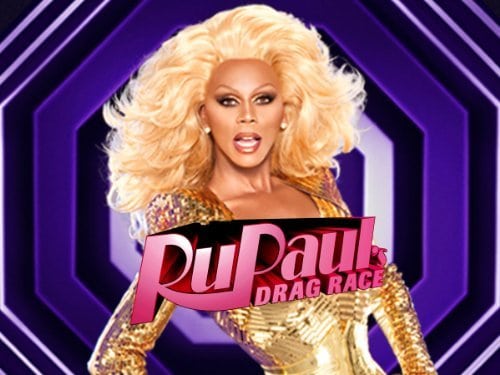
But on the textual front, normalization of the phrase didn’t come about until around 2012.
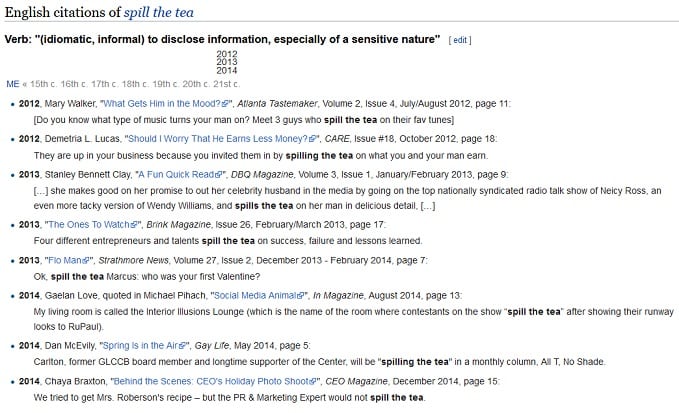
By then, the phrase “spilling tea”—or just “what’s the ‘tea’”—had been appropriated by the majority white culture. And many on that front believed it to be something originally coined by good ol’ Southern belles getting together for gossip . . . over sweet tea. Which isn’t true.
Although, the phrase might have borrowed heavily from the phrase “spill the beans”, which is not related to coffee. No known exact, agreed-upon meaning for that phrase currently exists, but it is likely a hodgepodge idiom chimerically brought into existence by several unrelated folk etymological traditions; some dating back as far as Ancient Greece.
By now, the phrases “tea” and “spill the tea” have gained widespread acceptance. However, the phrase “real tea” seems to act as a corrective to the idea that it’s just about gossip. For instance, when someone says, “What’s the tea?”, and they follow up with, “the real tea”, the inquirer implies a desire to learn the truth. Not just heresay.
That’s the part I find the most fascinating. An idiom that originally stood for “truth”, which then devolves into an idiom for “gossip”, returns to its original meaning—its true meaning. This phrasing full-circle journey is what fascinates me about the evolution of the English language, plus the histories and stories linked to it.
Much like the beloved beverage that served as a partial inspiration.
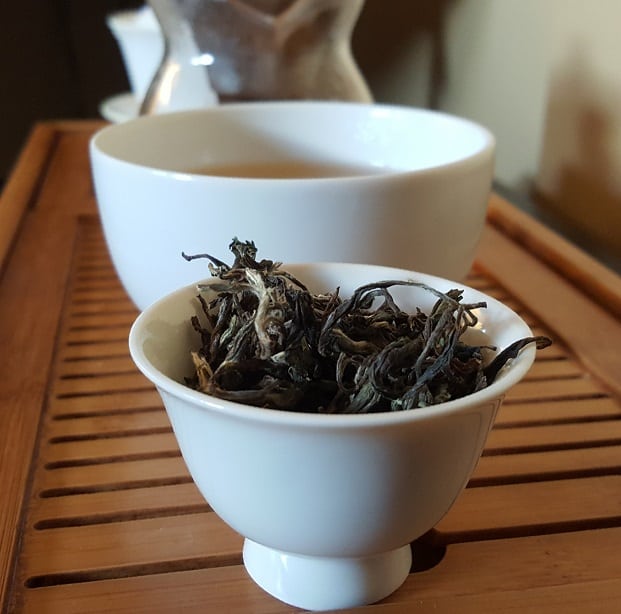
So, take this as one word-nerd-turned-YouTube-junky-turned-tea-geek’s invitation/permission to get together with friends, family, loved ones, and spill the tea. Over tea.
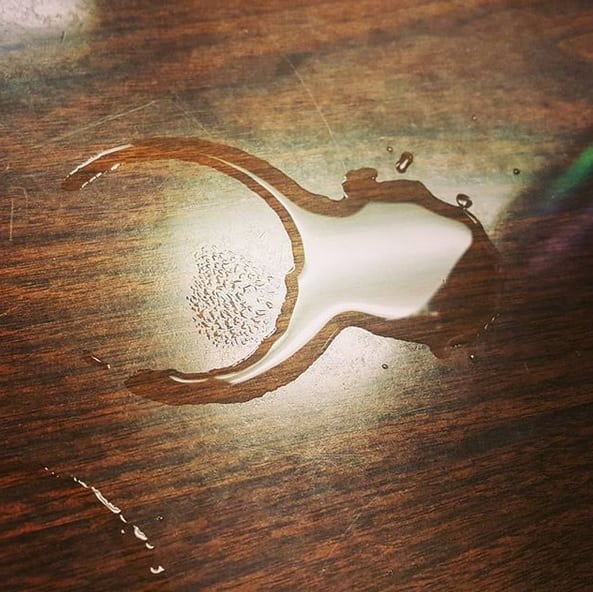
Preferably real tea.
Leave a Reply